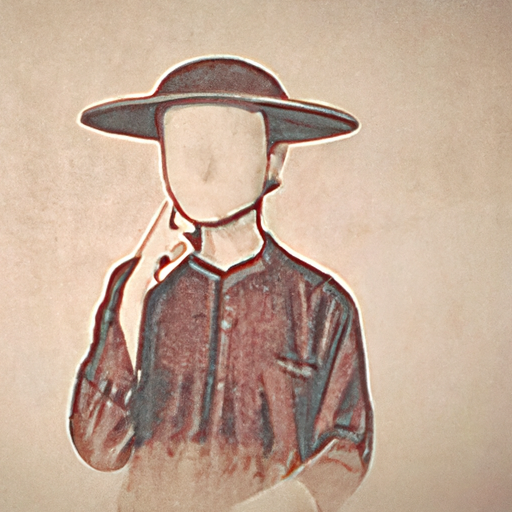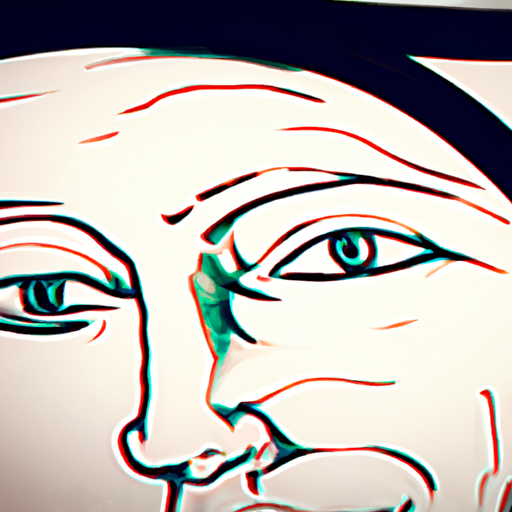
-
Table of Contents
- Folk Art Inspirations in Contemporary Graphic Design
- Understanding Folk Art
- The Influence of Folk Art on Contemporary Graphic Design
- 1. Cultural Authenticity
- 2. Visual Impact
- 3. Emotional Connection
- Examples of Folk Art-Inspired Graphic Design
- 1. Airbnb
- 2. Orla Kiely
- 3. IKEA
- The Impact of Folk Art-Inspired Graphic Design
- 1. Cultural Appreciation
- 2. Unique Branding
- 3. Increased Engagement
- Conclusion
Folk Art Inspirations in Contemporary Graphic Design

Folk art has a rich history that spans across cultures and generations. It is a form of artistic expression that reflects the traditions, beliefs, and values of a community. In recent years, folk art has found its way into contemporary graphic design, adding a unique and authentic touch to modern visuals. This article explores the influence of folk art on contemporary graphic design, examining its characteristics, examples of its incorporation, and the impact it has on the design industry.
Understanding Folk Art
Folk art, also known as traditional or indigenous art, encompasses a wide range of artistic expressions created by individuals who are not formally trained as artists. It is deeply rooted in cultural heritage and often reflects the daily lives, rituals, and beliefs of a community. Folk art can take various forms, including paintings, sculptures, textiles, ceramics, and more.
Key characteristics of folk art include:
- Simplicity: Folk art often features simple and straightforward compositions, using basic shapes and forms.
- Bold colors: Vibrant and bold colors are commonly used in folk art to create visually striking pieces.
- Symbolism: Folk art frequently incorporates symbols and motifs that hold cultural or religious significance.
- Handmade techniques: Many folk art pieces are created using traditional, manual techniques, such as hand-painting or hand-carving.
- Storytelling: Folk art often tells stories or conveys narratives through its imagery, capturing the essence of a community’s history and traditions.
The Influence of Folk Art on Contemporary Graphic Design
Contemporary graphic designers have increasingly turned to folk art for inspiration, incorporating its unique aesthetic and cultural significance into their work. This fusion of traditional and modern elements creates visually captivating designs that resonate with audiences on a deeper level.
1. Cultural Authenticity
Folk art brings a sense of cultural authenticity to contemporary graphic design. By incorporating traditional symbols, motifs, and techniques, designers can create visuals that reflect the heritage and identity of a particular community or region. This authenticity adds depth and meaning to the design, making it more relatable and engaging for the target audience.
For example, the Mexican holiday Dia de los Muertos (Day of the Dead) has inspired numerous graphic designs that incorporate traditional folk art elements such as sugar skulls, marigolds, and vibrant colors. These designs not only capture the essence of the celebration but also pay homage to Mexican culture and traditions.
2. Visual Impact
The bold colors and simple yet striking compositions of folk art make it highly visually impactful. When integrated into contemporary graphic design, these elements can help designs stand out and grab the viewer’s attention. Folk art-inspired designs often evoke a sense of vibrancy and energy, creating a memorable visual experience.
One notable example is the work of contemporary graphic designer Paula Scher. Scher often incorporates folk art-inspired elements into her designs, such as bold geometric patterns and vibrant color palettes. Her work for the Public Theater in New York City is a prime example of how folk art influences can create visually stunning and impactful designs.
3. Emotional Connection
Folk art has a way of evoking emotions and creating a sense of nostalgia. By incorporating folk art elements into contemporary graphic design, designers can tap into these emotional connections and create a deeper bond with the audience. The familiarity and cultural resonance of folk art can evoke feelings of comfort, nostalgia, and a sense of belonging.
For instance, the use of traditional Scandinavian folk art motifs in contemporary graphic design can evoke a sense of coziness and warmth, reminding viewers of their cultural heritage and creating an emotional connection.
Examples of Folk Art-Inspired Graphic Design
There are numerous examples of contemporary graphic design that draw inspiration from folk art. Here are a few notable examples:
1. Airbnb
Airbnb, the popular online marketplace for lodging and tourism experiences, has incorporated folk art elements into its branding and marketing materials. The company’s “Belong Anywhere” campaign features illustrations inspired by traditional folk art from various cultures around the world. These illustrations not only add visual interest but also convey a sense of cultural diversity and inclusivity.
2. Orla Kiely
Irish fashion designer Orla Kiely often incorporates folk art-inspired patterns and motifs into her designs. Her use of bold colors, repetitive patterns, and nature-inspired imagery reflects the influence of traditional Irish folk art. Kiely’s designs have gained international recognition and have become synonymous with her brand’s unique aesthetic.
3. IKEA
Swedish furniture retailer IKEA has embraced folk art influences in its product designs. Many of IKEA’s textiles, such as rugs and fabrics, feature traditional Scandinavian folk art motifs, such as flowers, animals, and geometric patterns. These designs add a touch of cultural authenticity to IKEA’s products, making them more appealing to a global audience.
The Impact of Folk Art-Inspired Graphic Design
The incorporation of folk art into contemporary graphic design has had a significant impact on the design industry. Here are some key effects:
1. Cultural Appreciation
Folk art-inspired designs have sparked a renewed interest in traditional art forms and cultural heritage. By incorporating folk art elements into their work, designers are promoting cultural appreciation and preserving traditional artistic practices. This appreciation can lead to a greater understanding and respect for different cultures and their artistic contributions.
2. Unique Branding
Brands that incorporate folk art-inspired designs into their visual identity can create a unique and recognizable brand image. By tapping into the authenticity and emotional connections associated with folk art, these brands can differentiate themselves from competitors and establish a strong brand identity that resonates with their target audience.
3. Increased Engagement
Folk art-inspired designs often evoke strong emotional responses from viewers, leading to increased engagement and interaction. By incorporating familiar symbols and motifs, designers can create designs that resonate with the audience on a personal level, encouraging them to connect with the brand or message being conveyed.
Conclusion
Folk art has found a new life in contemporary graphic design, adding cultural authenticity, visual impact, and emotional connections to modern visuals. By incorporating traditional symbols, motifs, and techniques, designers can create designs that reflect the heritage and identity of a community or region. The influence of folk art on contemporary graphic design has resulted in unique and visually captivating designs that resonate with audiences on a deeper level. As the design industry continues to evolve, the incorporation of folk art-inspired elements will likely remain a powerful and influential trend.
